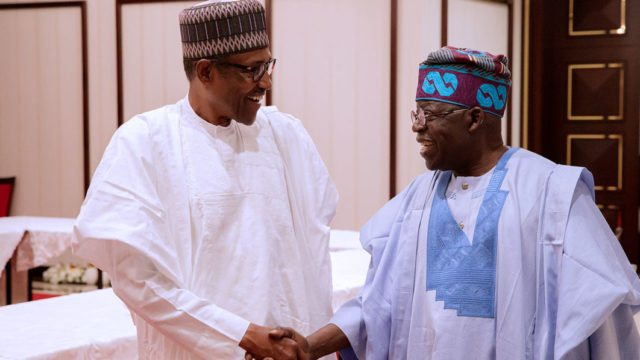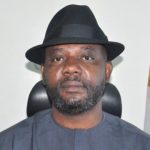By Paul Adunwoke
As Nigeria marches towards the 2023 general elections, the candidates vying for elective positions at federal and state levels have been deploying varied methods to woo the electorate to their side.
For the Presidential candidate of the All Progressives Congress (APC), Asiwaju Bola Ahmed Tinubu, besides doing open-air campaigns across the state, one other tool being used to reach voters is symposium.
Recently, the second edition of the symposium aimed at dissecting Asiwaju’s manifesto was held with a focus on Tinubu’s framework for power and energy reform. And the Minister of Works and Housing, Babatunde Raji Fashola, (SAN) was on hand to provide insight into Tinubu’s power and energy reform at the gathering while also discussing its nexus with Buhari’s infrastructure development.
He said: “I have challenged people to ask themselves if they can remember anything the main opposition committed to, when they were elected in 1999. For 16 years, they allowed Nigeria to drift without any clear policy direction or articulation.
“Other than slogans like ‘Transformation Agenda’ whose details were undisclosed, during a period of prolific earnings from very elevated international crude oil prices, to a ‘Seven Point Agenda,’ which later became a ‘Five Point Agenda,’ I am yet to receive a response.
“Unless it remains hidden under their unreliable umbrella, it must be taken that we surrendered 16 years of our lives to a party from 1999 to 2015, that made no credible promises and no recognisable commitment.
“To those who may wonder why I choose to start my intervention this way, it is my answer to those who erroneously assert that politics in Nigeria is not about issues. They are wrong.
“APC came into office by identifying the major issues confronting Nigeria before the 2015 general elections and the National survey conducted showed that the issues at the top of mind of voters were security, corruption and the economy.”
According to him, the APC made clear commitments about how to deal with the issues and got elected. He added that as far as the economy is concerned, one of its necessary drivers is infrastructure to which the APC has vigorously committed herself.
He said: “The results are manifesting with thousands of kilometres of roads and bridges, expanded airport runways and terminal buildings in five international airports, a new seaport in Lekki, the Ajaokuta complex, Kaduna and Kano Gas Pipeline, train seven of the NLNG, investment in the Dangote Refinery to support private sector initiative for local production of petroleum products as well as the upgrade of four existing refineries.
“Why are these important you might ask? Our opponents reluctantly acknowledge these giant strides but are unable to connect them to the economic opportunities they offer now to workers, construction companies and suppliers who operate in this economy; and they are unable to see what this means for Nigeria’s economy in the future.
“On one hand, they talk about stimulating the economy through production, but their home economics model does not address how anyone can expect to produce without roads, ports and bridges or gas.
“They are unable to relate cost push inflation to travel time, the cost of haulage or delays at the port or indeed to how continued importation of petroleum products that they could not reverse in 16 years impacts the cost of living.
“I doubt whether they appreciate that the port that they privatised has not produced the desired results and it is APC government that has rebuilt the Apapa to Oworonshoki Road that evacuates the largest and busiest port in Nigeria, and it is the same government that is building the Lagos – Ibadan Highway that facilitates distribution of goods and services. Yet, they want to privatise more.
“The importance of this part of my intervention is to demonstrate without a shadow of doubt that infrastructure is the foundation for building any economy following which are policies that herald reforms.
“The Buhari-led APC government has spent their time in office building this critical hardware of infrastructure and many parts of power sector infrastructure are already being put in place.
“The agreement with Siemens, under the Presidential Power Initiative, seeks to remedy the shortcomings of the privatisation they undertook in 2013 especially the distribution sector where some of those who acquired the DisCos do not have the necessary financial means to finance the investment required to guarantee power to homes and businesses. These are massive numbers of distribution transformers and related assets.”
Fashola stated that the Buhari Power Initiative seeks to deliver in three phases. He said that the critical and ‘quick win’ interventions to increase the system’s end-to-end operational capacity (currently 5GW) to 7GW; Distribution Network bottlenecks to enable full use of existing generation and distribution capacities, bringing the system’s operational capacity to 11GW, and Total operational grid capacity of 25 GW in the long term, with commensurate upgrades and expansion of the national generation, transmission and distribution systems.
The minister further said that the building and upgrading of 100 sub-stations critical to distribution; the purchase of 11 mobile substations to provide relief when local substations need repair or maintenance as well as the purchase and installation of 2,906 distribution transformers.
“In the same vein, many of the power plants constructed under the NIPP do not have sufficient gas supply or transmission lines. I visited 23 out of the 28 generation plants in existence at a time. From Geregu to Omotosho to Papalanto and the Enron Power Station, gas supply was being rationed among turbines, so that all the existing capacity could rarely be deployed. This is partly what the Ajaokuta, Kaduna, Kano Pipeline Project seeks to address.
“In other places, it was the transmission capacity that was struggling. This is what the Presidential Power Initiative is responding to by seeking to provide:
“The Buhari government has also put in place a policy for mini grids, supported by NERC Regulation No. MERC/-R-/110/17 of 2017 that allows individuals and corporations to generate and distribute off grid, embedded power of 100kw without approval and up to 1Mw with approval.
“This again puts a lie to the argument that the grid needs to be decentralised. It has been decentralised and people need to take full benefit of the policy. The government in office has led with initiatives of embedded power in markets like Ariaria, Sabon Gari and Sura in Aba, Kano and Lagos.
“There have been initiatives in university campuses, nine in total, with seven completed, with Phase 2 for an additional seven universities in procurement.
“These are only part of 67 off-Grid power projects already implemented by the APC government under the supervision of the Rural Electrification Agency.
“You might then ask, why are there still power outages? My response is that there is still work to be done. The deployment of mini grids has not yet taken widespread application and this is where the private sector needs to be made more aware of the policy and the regulator needs to be more proactive.
“The Siemens Presidential Power Plan to address distribution and transmission and the gas projects are works in progress that have started and are at various stages of implementation and completion.
“This brings me therefore to why we are here. The Asiwaju Framework for Power and Energy Reform. This is well articulated in the APC tradition of identifying issues and proposing solutions; on pages 30 to 32 of Asiwaju’s Action Plan for a Better Nigeria titled Renewed Hope 2023.
“First, he recognises at page 30 of the plan that the problems cannot be solved overnight. He offers to eliminate the losses between generation and distribution by addressing the transmission problems, which the current Presidential Power Initiative has started.
“This is more than a paper policy. It speaks to many things including Asiwaju’s known commitment for standing with people in need. It tells those who are victims of estimated billing that they are not invisible. It is a message that Asiwaju sees them and offers a solution.
“It also demonstrates APC’s progressive credentials as a party committed to the improvement of the human condition.
“The contrasting position is the policy on metering left by the main opposition before 2015, called CAPMI, an acronym for Credit Advanced Payment Metering Implementation which required consumers to advance the cost of their meters to DisCos.
“The Buhari government inherited this policy from the previous administration and also inherited complaints from the hundreds and thousands of advance payments for meters that were not supplied. In effect, instead of advance payment for meters, it was becoming like an advance fee fraud that fits the definition in the famous Section 419 of the criminal code with payments made for meters not supplied.”
Fashola noted that the anti-corruption stance of the Buhari government could not share the same place with such a scheme and promptly dissociated itself from it as a government policy, leaving it to the discretion of the consumer whether to trust their supplier with advance payment.
“In its place, the government through the Regulator started a new policy – the MAP, an acronym for Meter Asset Provider, as a new business that focuses on meter provision and expands the value chain of the power sector beyond GenCos, TCN and DisCos.
“Asiwaju’s plan will therefore support meter asset providers. There is a renewable energy plan in the Asiwaju Framework, and this is the driver for rapid deployment of mini grids that I spoke about earlier, especially solar energy, which he formally addresses as a point of focus.
“Apart from the employment and entrepreneurship benefits for suppliers, installers and manufacturers, this brings Nigeria into the centre of global energy discussion and opens up a new market for carbon credits which is estimated at $261 Billion global, $50 Billion for Africa and $ 2.64 annually for Nigeria.
“The low hanging fruits are the number of generator power plants that we can replace with solar and the renewables.”
The minister stated that rural dwellers are visible to Asiwaju as his plan clearly identifies them and their needs.
“He offers incentives and change of policies that encumber investment for power in rural areas and seeks to mobilise local capacities in our universities and polytechnics to lead the research that unlocks delivery of power to rural areas. This clearly is the difference between us and the main or fringe opposition. We have the capacity to identify the problem, offer a solution and mobilize resources to confront them.
The heavy lifting and hardware has been done under the Buhari government. Asiwaju is bringing the reform and connections that drive the process to manifest results.”
Source: The Guardian









Hello there! Do you know if they make any plugins to help with Search Engine Optimization? I’m trying to get my blog
to rank for some targeted keywords but I’m not seeing very
good success. If you know of any please share. Kudos! I saw similar
blog here: Warm blankets